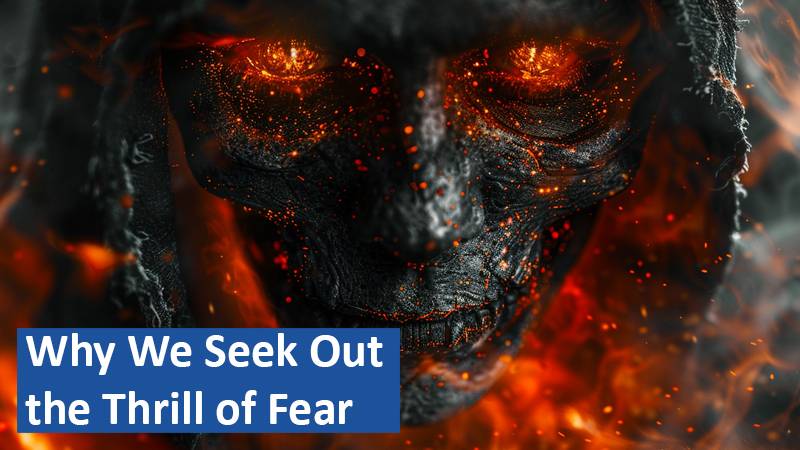The allure of horror lies in the thrill of the unknown, a captivating blend of fear and fascination that brings audiences back to scary movies, haunted houses, and true-crime stories. Blockbuster horror films like It and The Exorcist have made millions, while true-crime podcasts top the charts year after year. Ghost trains, haunted houses, and eerie experiences are staples in theme parks worldwide. But what fuels this seemingly paradoxical human desire for fright?
By Aubree Ross
The Paradox of Enjoying Fear

At first glance, our enjoyment of fear seems puzzling. Watching horror movies filled with screams and intense scenes doesn’t naturally invite comfort, yet millions willingly return for more. Psychologists suggest that our enjoyment comes from the secure position we hold as spectators—knowing the threat isn’t real. This assurance allows us to explore dark themes and indulge in our fascination with danger, all from a safe vantage point.
Fear as Preparation for Real Threats
Horror movies may serve a purpose beyond entertainment, providing a “mental rehearsal” for real-life challenges. Researchers at the University of Chicago, led by Coltan Scrivner, found that horror films allow audiences to simulate threatening scenarios in a safe, controlled environment. Watching people react to zombie apocalypses, natural disasters, or human threats offers viewers subtle preparation techniques, useful even beyond fiction. In fact, Scrivner’s study indicated that horror fans showed higher resilience during the COVID-19 pandemic, experiencing fewer sleep and anxiety issues than others.
Building Resilience Through Horror
Exposure to frightening content can strengthen our psychological resilience, particularly for those who may already have high anxiety levels. Horror movies repeatedly expose audiences to controlled fear, helping desensitize them to threats. According to Peter Zwanzger from the University Hospital of Psychiatry in Munich, regular exposure to frightening stimuli can help people overcome fears, as familiarity reduces perceived danger. Thus, horror may have benefits for anxious individuals, offering a unique coping mechanism to confront and manage fear.
The Physical Rush of Fear
Horror films create a surge of adrenaline that brings a physical response as powerful as the mental one. Watching frightening scenes literally makes the blood “thicken” by increasing clotting factors, preparing the body for fight or flight. This process also triggers a spike in heart rate and sweat production, which, while stressful in the short term, releases endorphins and dopamine for a rewarding sense of calm afterward. For many, this physiological high makes the experience of fear surprisingly enjoyable.
Fear, when controlled, can create a safe environment for thrill-seeking, balancing excitement with security. Horror allows us to walk the edge of terror without ever facing real danger, delivering both adrenaline and a satisfying sense of relief.
Based on information from www.scinexx.de and own research.